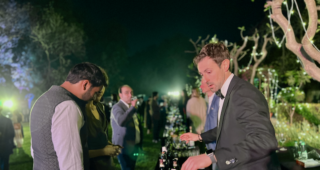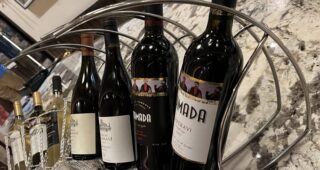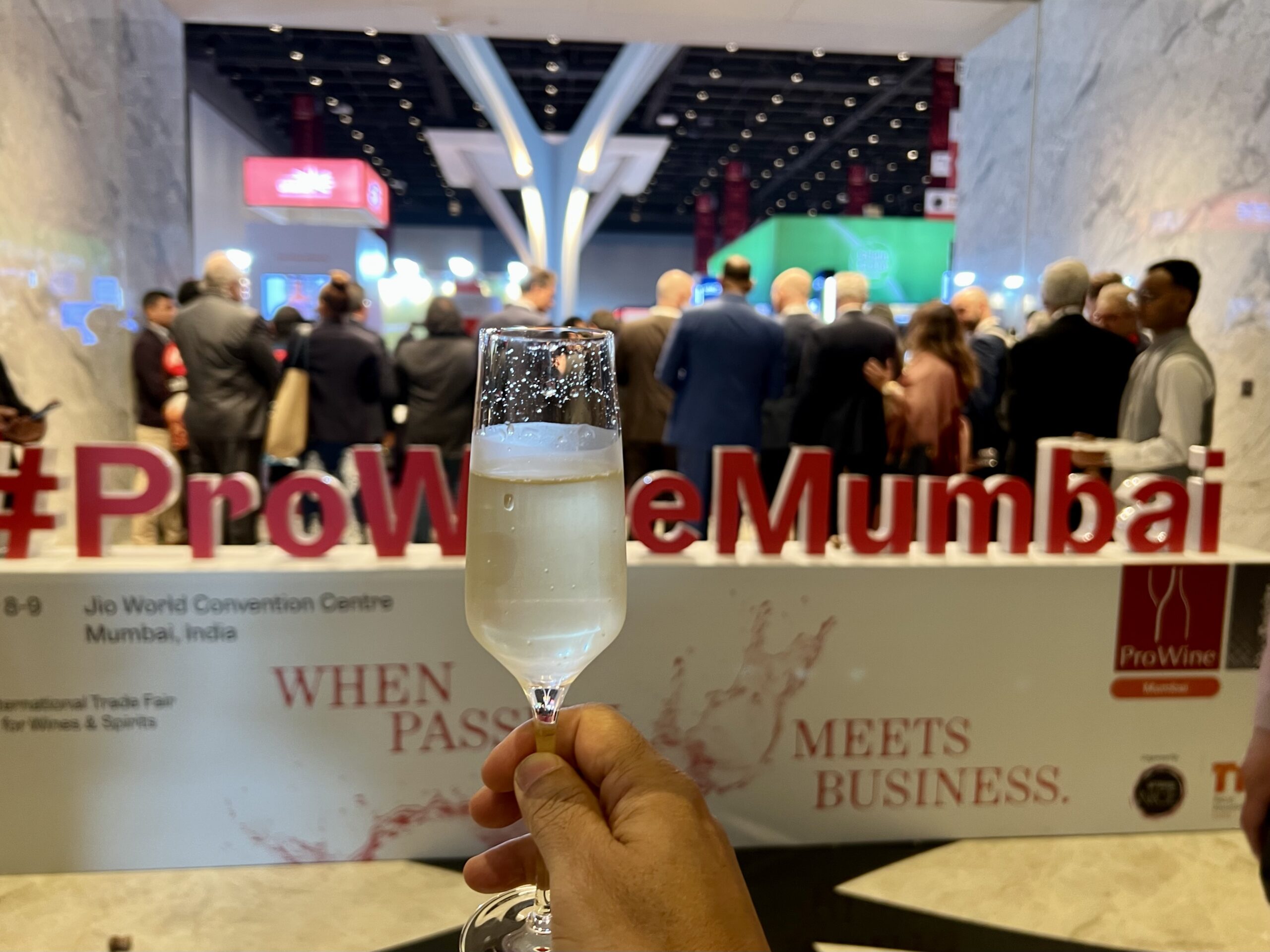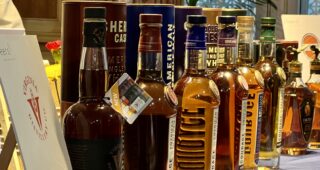It was one of those rare occasions when the ‘lead artist’ took a backseat in favour of the ‘supporting cast’. As Alexander Zorin, Vice President Sales from Riedel, one of the most respected wine glass companies, unpacked the last of tasting sets for the ensuing session on varietal specific glassware, anticipation ran high. We were all eager to experience the difference in perceiving wine from optimized Vs. generic glassware. For a change, it was the glass to do the talking rather than wine. The session was conducted at Akira Back- the Japanese-Korean restaurant at hotel JW Marriott Aerocity New Delhi. I was in attendance at the invitation of my good friend Ankur Chawla, Director of Beverages at the hotel who also plays a larger role in Marriott’s Beverages Committee for Asia-Pacific.

A Wine Tool
The Riedel philosophy unabashedly announces a wine glass as a ‘tool’ that facilitates appreciating the bouquet, texture, taste and finish of a particular wine. To come to this conclusion, they cite their decades of research to arrive at optimum shapes and sizes of the respective glasses. Though Riedel have a history of producing glass dating back to 1756, it was only in the 1950’s that they started producing wine-friendly stemware. It all began when at a casual gathering, guests were called upon to fetch their glasses from a nearby cabinet and Claus Riedel, their 9th generation helmsman discovered that the same wine tasted differently in the melee of resulting assortment. He narrowed down on the best glass for the particular wine and the foundation for grape varietal glassware was laid.
How Glassware Influences Tasting
Most of us probably know that human tongue has distinct sensory regions related to different taste profiles. Over time, the demarcation of these regions has evolved as a ‘tongue map’. The theory has been challenged though, in the form of subsequent research confirming that all taste qualities are found in all areas of the tongue. But in the wine context, the tongue map theory has been largely corroborated and glassmakers like Riedel have emphatically proved its relevance.
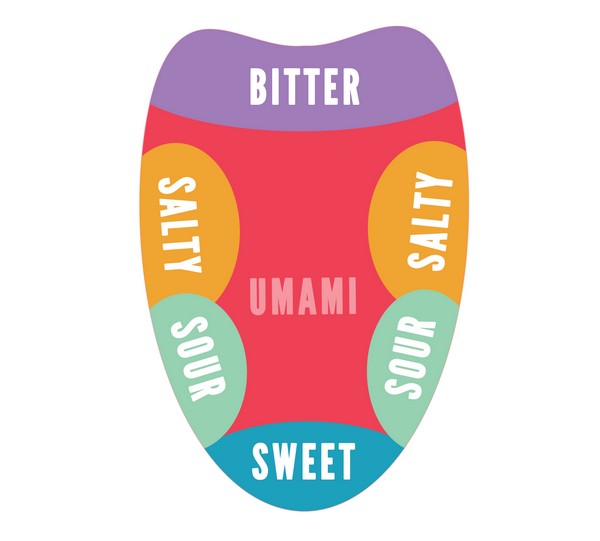
The taste of wine is largely defined by it’s ‘initial attack’ (how it is perceived immediately on sipping) and the ‘finish’ (the lingering taste after you have gulped it down). ‘Varietal specific’ glassware looks at fine tuning the drinking experience by channeling the wine onto desirable places- taking the tongue map as a guide. Level of acidity, fullness of body, vigorousness of tannins are some of the wine traits sought to be accentuated/subdued using the ‘right’ kind of glass. On the aroma front too, the shape of glass determines how focused or dissipative the bouquet of a wine can get.
Alexander informed us that in the initial years, some reputed Bordeaux producers complained to Claus Riedel of their wines not tasting appreciably well in his red wine glass. The observation compelled Claus to further research, only to realise that the glasses in question were designed with Piemontese wines in mind. This egged him further to come up with specific glasses for Bordeaux wines, followed by several others. Today Riedel glasses have a range of approximately 450 different shapes that cater to the whims and fancies of their finicky ‘occupants’.
Riedel Technicalities

So how does the fluid mechanics of wine get affected in such specialized glassware? The Riedel philosophy looks at three parameters:
- Shape of the bowl
- Size of the bowl
- Rim diameter of the bowl
Apart from the above, the stem and base of the glass form an important part of its architecture, to promote stability.
These parameters determine how much wine is contained in the bowl, how it moves within, and how it gets directed inside your mouth. Sounds too technical? Imagine yourself puckering your lips to sip from a narrow mouthed glass vis-a-vis a broad mouthed one. The wine in the former case will tend to flow towards centre of the palate rather than filling it up instantly as in the latter.
The Validation
The proof of a pudding is in its eating, hence we took our places at the neatly arranged table that had five glasses each, precisely arranged on printed mats on their respective places. 4 glasses from Riedel’s Veritas (their grape varietal specific range) completed the ensemble with a water tumbler as the ‘joker’.

Alexander started the experience by urging the participants to pour some water in all the glasses, to sip from each and feel how differently it flowed inside the mouth. The initial point was made and well received.
The wines followed, with each of them sampled from the respective varietal specific as well as the other glasses. The comparisons stood out starkly with each wine blossoming optimally only from its respective glass while appearing comparatively lackluster from others.
For example, the aromatic Sauvignon Blanc (SB) was subdued in the Oaked Chardonnay glass and the Chardonnay returned the favour by appearing too limp from the SB glass. Similarly the Cabernet blend demonstrated good balance from the Cabernet Sauvignon glass while it appeared too tannic from the SB glass.
The constant juggling of glasses during this exercise did feel like a musical chairs, but achieved the intent- of experiencing first hand, the relevance of varietal specific glassware.
The Bottomline
Does all this mean that we junk our ‘average Joe’ red and white wine glasses and start buying new glassware? Not exactly. Even Riedel have a generic glass recommendation from their range (Vinum XL Shiraz for red wine and Ouverture Magnum/Riesling Grand Cru/Chianti Classico for white wine ). However for obvious reasons, they would recommend people buying the varietal specific stuff. In my opinion, buying such specialized glassware would be good idea if you satisfy all of the following conditions:
- You regularly drink high pedigree wines at home.
- You have the moolah to spare (specialisation always comes at a cost).
- Storage space is not a constraint.
- You have the inclination of going that extra mile to maximize your wine experience.
The last point is most important as I realized when a multi millionaire wine connoisseur friend once told me- “I would rather spend more on wine than fussing over glasses”. But then, there was also this regular wine lover friend who couldn’t stop raving about his newly acquired Riedel’s Vinum tasting set .
As for me, the Veritas tasting set gifted by Alexander will keep me occupied for days to come.






